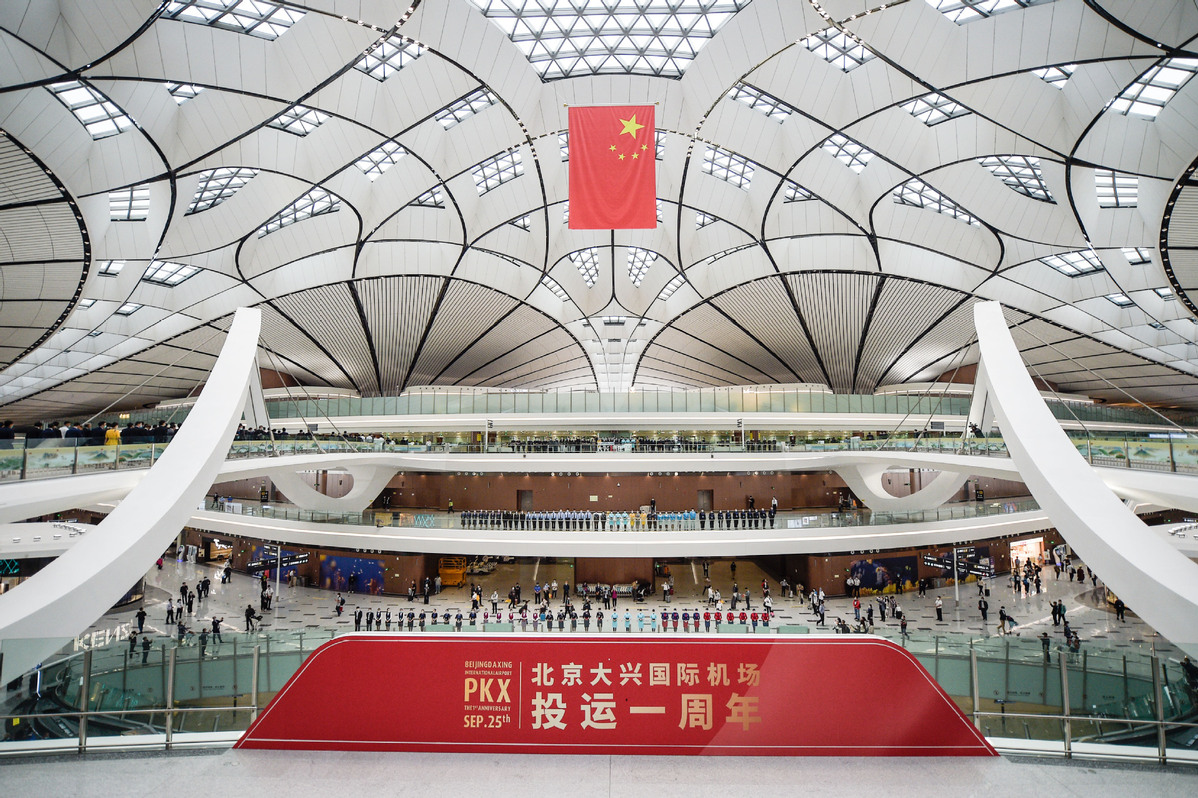Innovation, policy support needed in construction industry
By Zhao Wuchang | chinadaily.com.cn | Updated: 2020-10-28 17:13

For a long time, the construction engineering industry was at the lower level of social cognition. To the general public, the construction engineering industry was considered labor-intensive yet low-efficiency. Construction staff has to work and live in arduous working conditions, suffer from an unstable living environment and through remote areas, far from home and family.
With the completion of the 13th Five-Year-Plan period, great achievements have been made in the construction industry. A large number of landmark works have been completed, including Beijing Daxing International Airport in Beijing, the Hong Kong-Zhuhai-Macao Bridge in the Guangdong-Hong Kong-Macao Greater Bay Area, as well as various expressways, railways and government foreign aid programs.
However, the development of the construction engineering industry is still lagging behind the pace of other emerging high-tech industries, which requires us to continue to strengthen and embrace innovation, and become a pioneer on the road toward the nation’s great rejuvenation.
As for the current situation of construction projects, as a 40-year construction veteran, I think several aspects should be strengthened.
First, the construction industry is in urgent need to catch the momentum brought by the information age and fly on the wings of science and technology.
So far, the construction engineering industry is still labor-intensive – depending highly on labor with low efficiency, the participation of science and technology is not as high as other manufacturing industries since the government, society and enterprises invest less in science and technology.
We should intensify policy support at the national level, such as preferential flexible policies, tax reductions, personnel training and capital injections, to stimulate construction workers’ enthusiasm to invest in scientific research fields and make positive contributions to the development and growth of construction projects.
Research institutions, colleges and universities should help to develop VR, BIM, artificial intelligence, robots, 3D printing and other technologies suitable for construction engineering. Such R&D could promote the renewal of the construction engineering field and vigorously promote the factory production of prefabricated buildings.
More advanced high-tech mechanical equipment suitable for construction projects could efficiently alleviate heavy physical labor.
Second, we should build up a national-level talent bank of craftsmanship to promote professionalism.
At present, most operators in the construction engineering team are migrant workers from rural areas, skilled and with decades of work experience, but many of them have only entered the engineering industry for a few years thanks to the low entry barrier. Moreover, the majority of migrant workers are over 45 years old. Young people are not willing to come to the dirty and toilsome engineering industry. Such a demographic structure is not only inefficient, but also prone to safety and quality issues.
A lack of young skilled workers leads to difficulties in proper training to cultivate skilled workers. At the national level, it is suggested training institutions and vocational and technical colleges are vigorously developed to train craftsmen. Incentives should be granted to personnel with their skills. We should encourage enterprises, industry associations and other organizations to hold skills competitions on a regular basis to select, train and encourage outstanding employees to stand out and feel the glory brought by their craftsmanship. It is necessary to form an atmosphere of collaboration and learning to promote progress and professionalism.
Third, it is necessary to ease the worries of construction engineering practitioners. The construction engineering field requires strong seasonality and high mobility. It is difficult for those in construction engineering to take good care of their families after working in the field for many years. They are the so-called local "foreigners" without a sense of belonging. If our policies are implemented better, employees, especially migrant workers, can have housing in the project sites, their children can go to school easily and they can enjoy medical insurance according to the regulations in order to solve their worries. Then, they could not only create more economic value, but also promote the development of the local area, which is conducive to the organic development of social and economic benefits.
Zhao Wuchang is a senior engineer with the Northwest Research Institute of Engineering Investigations and Design and a national registered supervision engineer.
The opinions expressed here are those of the writer and do not necessarily represent the views of China Daily and China Daily website.
If you have a specific expertise and would like to contribute to China Daily, please contact us at opinion@chinadaily.com.cn, and comment@chinadaily.com.cn
























